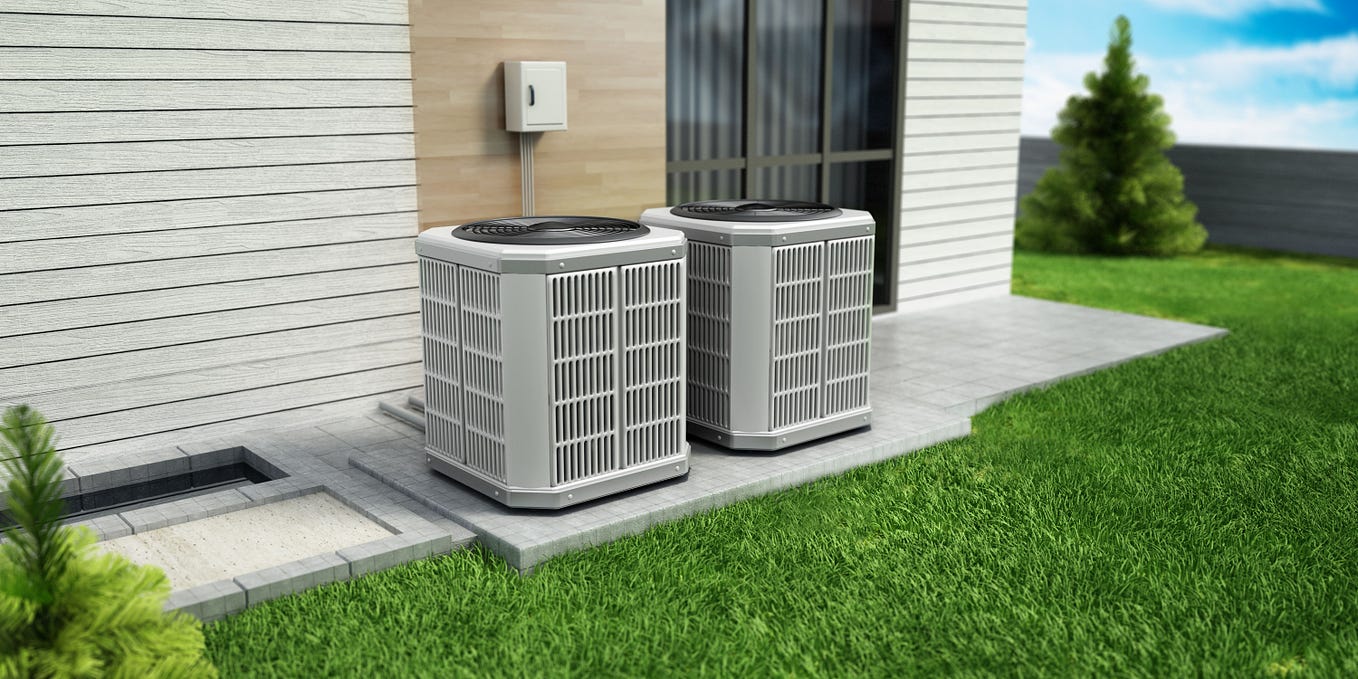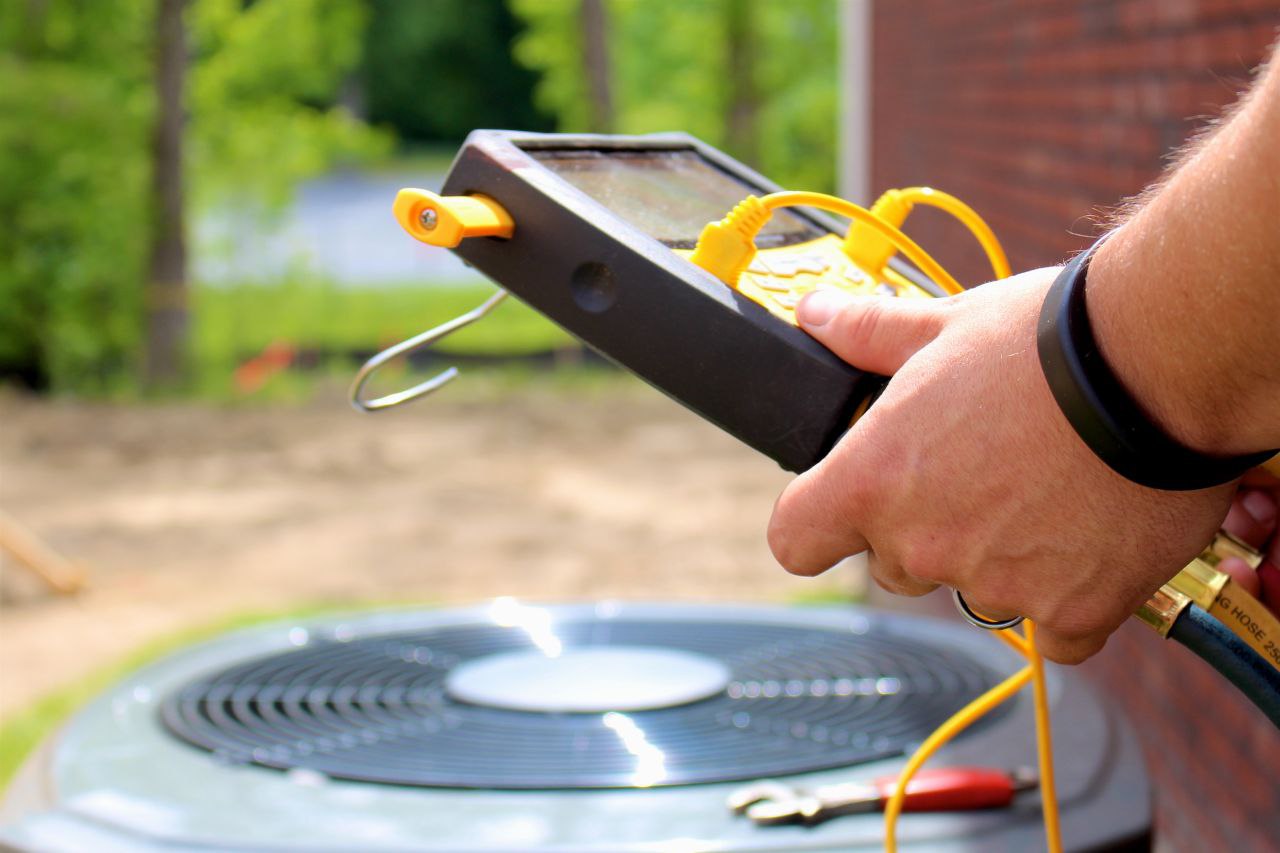Central AC Installation & Services in National City, СА
When the mercury rises, the last thing you desire is an unreliable air conditioning system. Let’s face it: sweltering inside during the summer is far from enjoyable, and those unsightly sweat stains are never a fashionable addition. To ensure you remain comfortable, it’s crucial to keep your air conditioner well-maintained. Plus, taking advantage of our complimentary A/C performance check when you have concerns can be a lifesaver.
HOW TO DETERMINE IF YOUR CENTRAL AIR CONDITIONING REQUIRES REPAIR?
Several common indicators suggest that your air conditioning system should be examined:
- Losing your cool: The air coming out of the vents is not as refreshingly cold as it used to be.
- Unusual sounds or odors: You notice unfamiliar sounds or detect strange odors emanating from the vents.
- Window-winding time: You experience minimal to no airflow from the vents.
WHY ISN’T YOUR AIR CONDITIONING BLOWING COLD AIR?
There can be multiple mechanical reasons behind the insufficient cooling of your air conditioner. Accord Air provides complimentary A/C inspections along with comprehensive A/C recharge and repair services. If your central A/C has lost its cooling power, simply schedule an appointment at any of our locations, and our skilled technicians will inspect, diagnose, and have your A/C system blowing cold air again.
THE PRICE OF A NEW AIR CONDITIONER
The cost of purchasing a new central air conditioning unit can be influenced by various factors. The price may fluctuate based on factors such as its size (measured in cooling capacity, Btu/h). Nevertheless, there are additional technologies and features that can impact the price, making the units quieter, reducing energy expenses, managing summer humidity, and ensuring compatibility with communicating comfort systems and thermostats. Features like variable-speed compressors, inverter-controlled operation, and multiple cooling stages can significantly enhance performance and comfort, albeit at an added expense for the new AC units.

In contrast, commercial HVAC systems tend to be larger and more costly compared to residential air conditioning systems. The pricing and determinants discussed in this article are primarily oriented towards heating and cooling systems for typical single-family homes in the United States and are meant for installation by professional cooling and heating system dealers.
WHAT DOES AN AIR CONDITIONER UNIT COST?
The price of an air conditioner unit can vary depending on the specific model you select. The Infinity models are equipped with advanced communication technology, improving both efficiency and comfort. These models typically come with higher price tags compared to the mid-range DAIKIN models and the basic AMANA units. However, within each category, there are various technologies, efficiency levels, and pricing options to choose from. For accurate pricing details, it is recommended to contact your local dealer. They can evaluate your home’s requirements and offer expert suggestions regarding suitable models and systems that match both your needs and your budget.
TYPES OF FACTORS AFFECTING AC INSTALLATION COST
The cost of air conditioning system installation is significantly influenced by various factors. One crucial determinant is the type of AC system that is being installed or replaced. Are you merely replacing the AC unit, or is it a complete system overhaul? Are you opting for the standard forced-air split system, comprising an outdoor AC unit and an indoor air handler unit, or are you considering a high-efficiency geothermal system or a compact residential system with both indoor and outdoor units enclosed in a single cabinet?
The most economical installation involves replacing only the outdoor split-system. This task can typically be completed in a span of 4 to 8 hours. If both the outdoor unit and the indoor unit, which is often a furnace or fan coil, need replacement, the installation may take 8 to 14 hours. Naturally, longer installation times translate to higher costs. In the case of geothermal systems, additional expenses are incurred for installing a ground loop, which might involve trenching or drilling in your yard. Compact systems that integrate both indoor and outdoor units into a single cabinet and position it outdoors simplify installation when existing ductwork is in place. However, handling these units can be challenging due to their size and weight. In some regions, they may even be installed on rooftops, introducing another layer of complexity and cost.

HOME-RELATED FACTORS
The condition of your home and the intricacy of the project are another set of factors that can influence the cost of central air conditioning installation or other AC systems. Home-related issues that come into play include:
- Home square footage
- The quality and quantity of insulation, caulk, and weather stripping
- The state of existing ducts
- Home layout (single-story, two-story, etc.)
- The number, quality, and placement of windows
- Location and climate
- General home condition and construction quality
All these factors, among others, can make the installation or replacement more labor-intensive for air conditioner contractors. For instance, if the existing ductwork is undersized or requires repairs, the contractor might have to allocate additional time to seal or replace the ducts before completing the installation. In the case of larger, multi-story homes, a zoned system with two or more AC units or supplementary ductless systems might be more suitable, but they entail additional costs for extra units and zone controls, as well as duct dampers where necessary. Moreover, even a properly sized and installed air conditioner might struggle on hot days if the home lacks proper insulation and sealing.
Additionally, energy-saving upgrades made to the home, such as improved insulation certified roofing, can reduce the peak cooling capacity required, potentially lowering the overall cost of the system.
